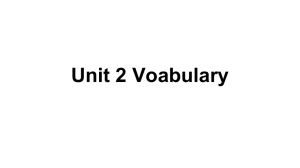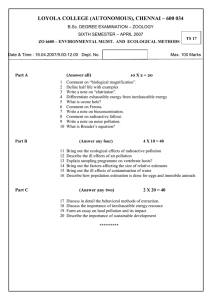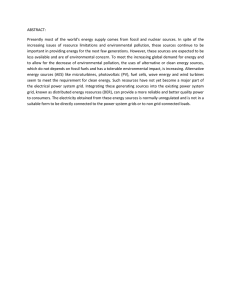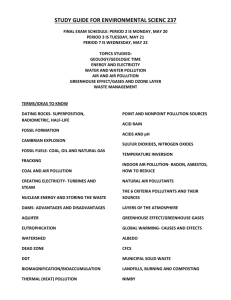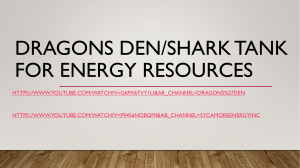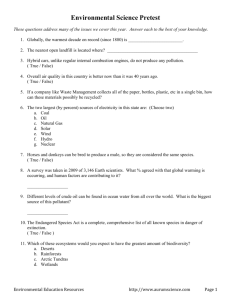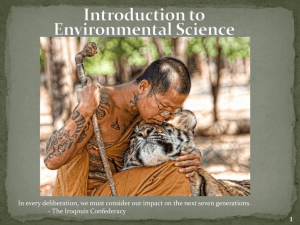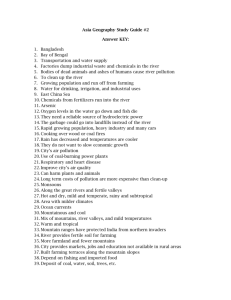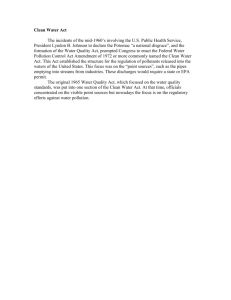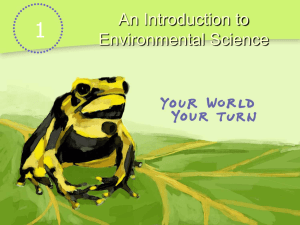Unit 2 Vocabulary with Definitions
advertisement
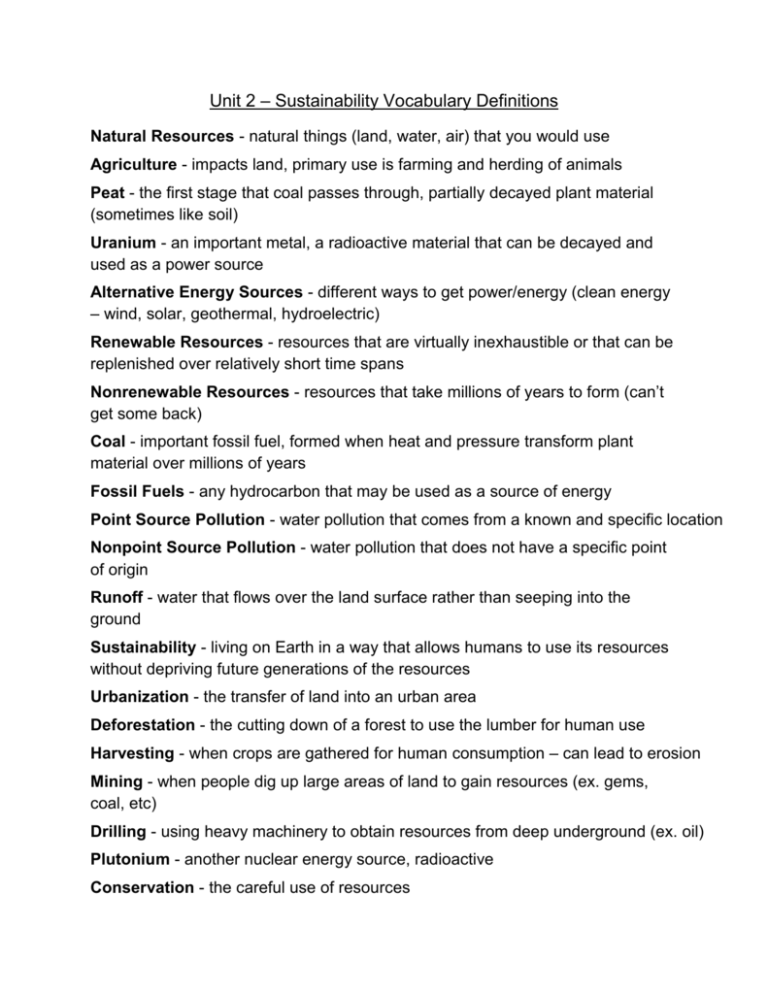
Unit 2 – Sustainability Vocabulary Definitions Natural Resources - natural things (land, water, air) that you would use Agriculture - impacts land, primary use is farming and herding of animals Peat - the first stage that coal passes through, partially decayed plant material (sometimes like soil) Uranium - an important metal, a radioactive material that can be decayed and used as a power source Alternative Energy Sources - different ways to get power/energy (clean energy – wind, solar, geothermal, hydroelectric) Renewable Resources - resources that are virtually inexhaustible or that can be replenished over relatively short time spans Nonrenewable Resources - resources that take millions of years to form (can’t get some back) Coal - important fossil fuel, formed when heat and pressure transform plant material over millions of years Fossil Fuels - any hydrocarbon that may be used as a source of energy Point Source Pollution - water pollution that comes from a known and specific location Nonpoint Source Pollution - water pollution that does not have a specific point of origin Runoff - water that flows over the land surface rather than seeping into the ground Sustainability - living on Earth in a way that allows humans to use its resources without depriving future generations of the resources Urbanization - the transfer of land into an urban area Deforestation - the cutting down of a forest to use the lumber for human use Harvesting - when crops are gathered for human consumption – can lead to erosion Mining - when people dig up large areas of land to gain resources (ex. gems, coal, etc) Drilling - using heavy machinery to obtain resources from deep underground (ex. oil) Plutonium - another nuclear energy source, radioactive Conservation - the careful use of resources
